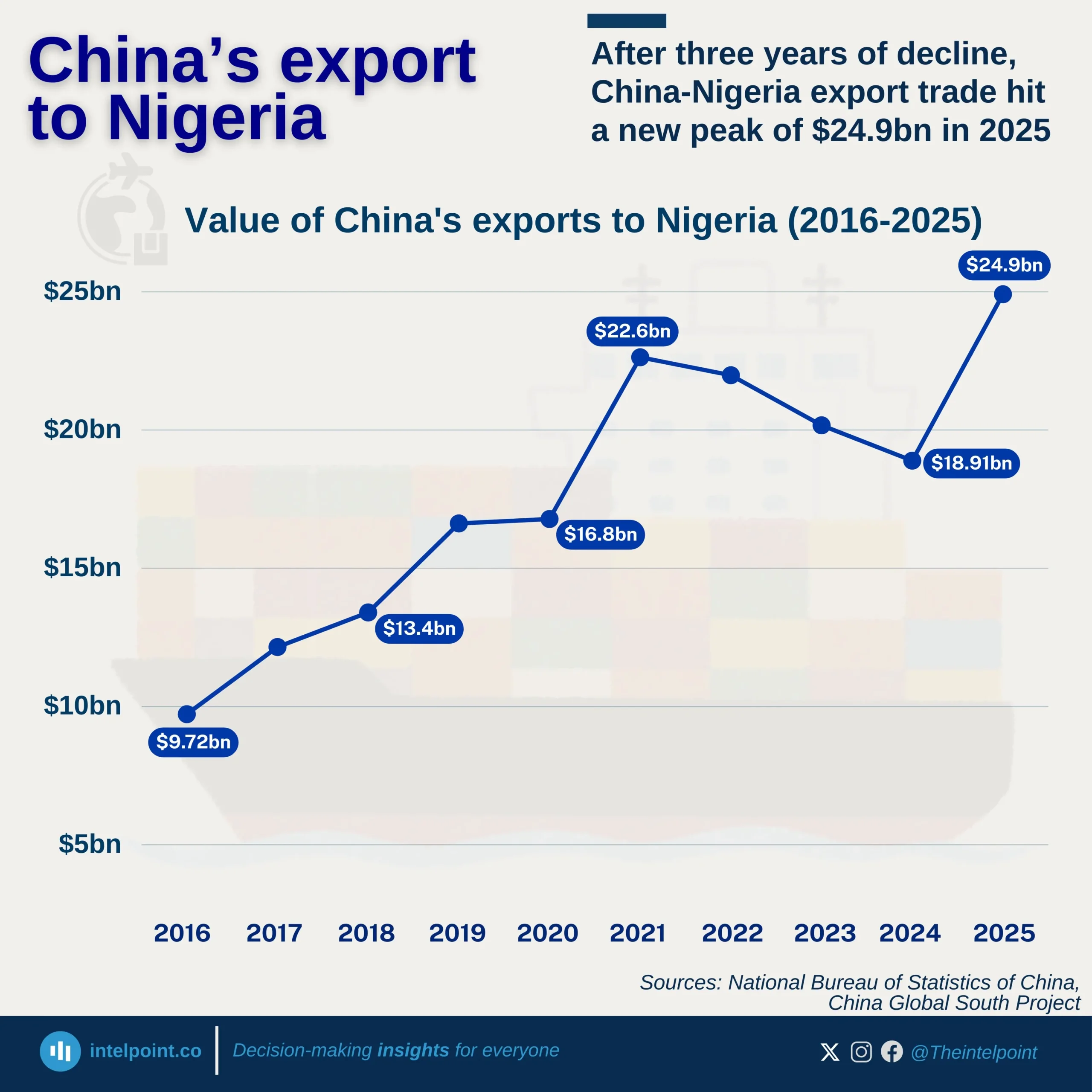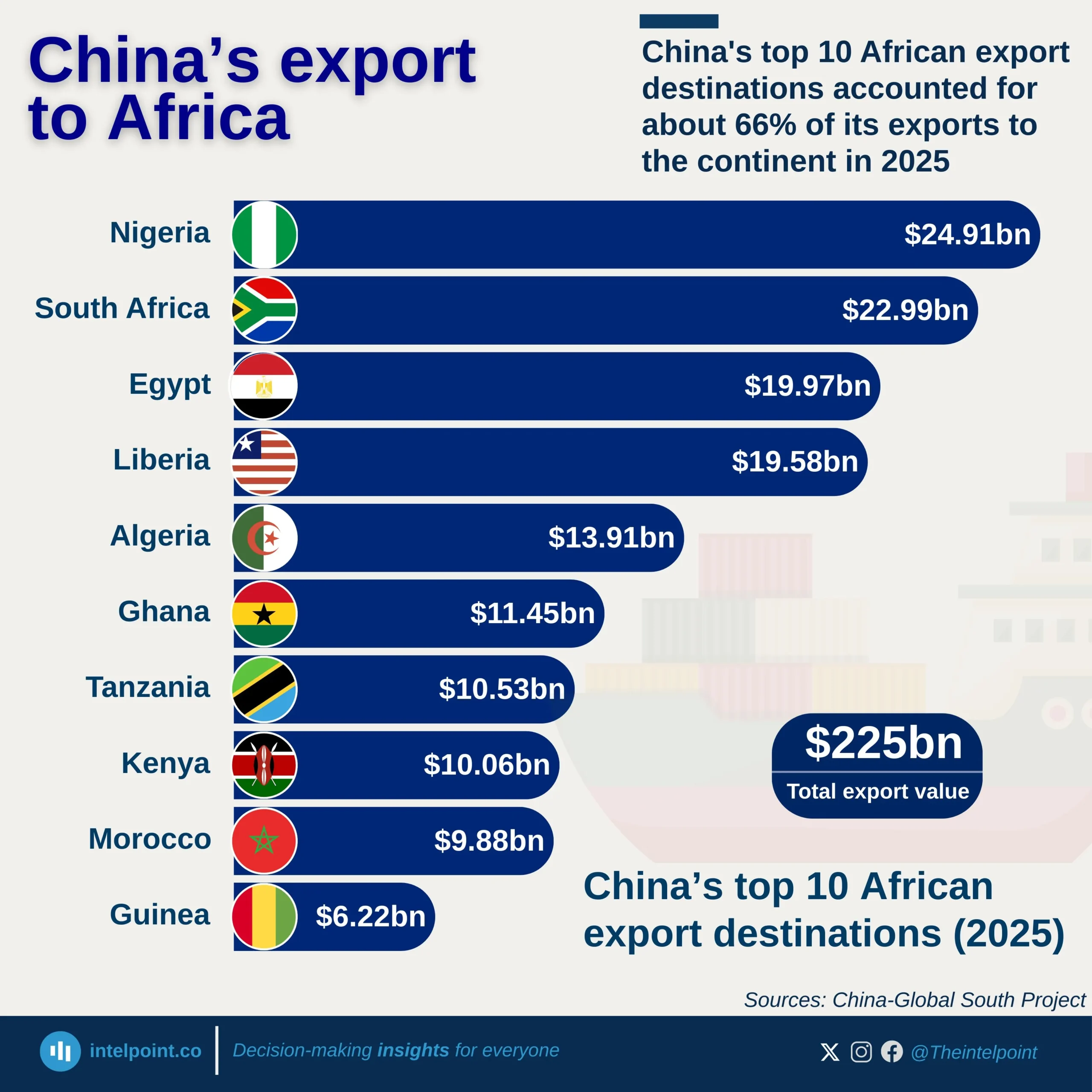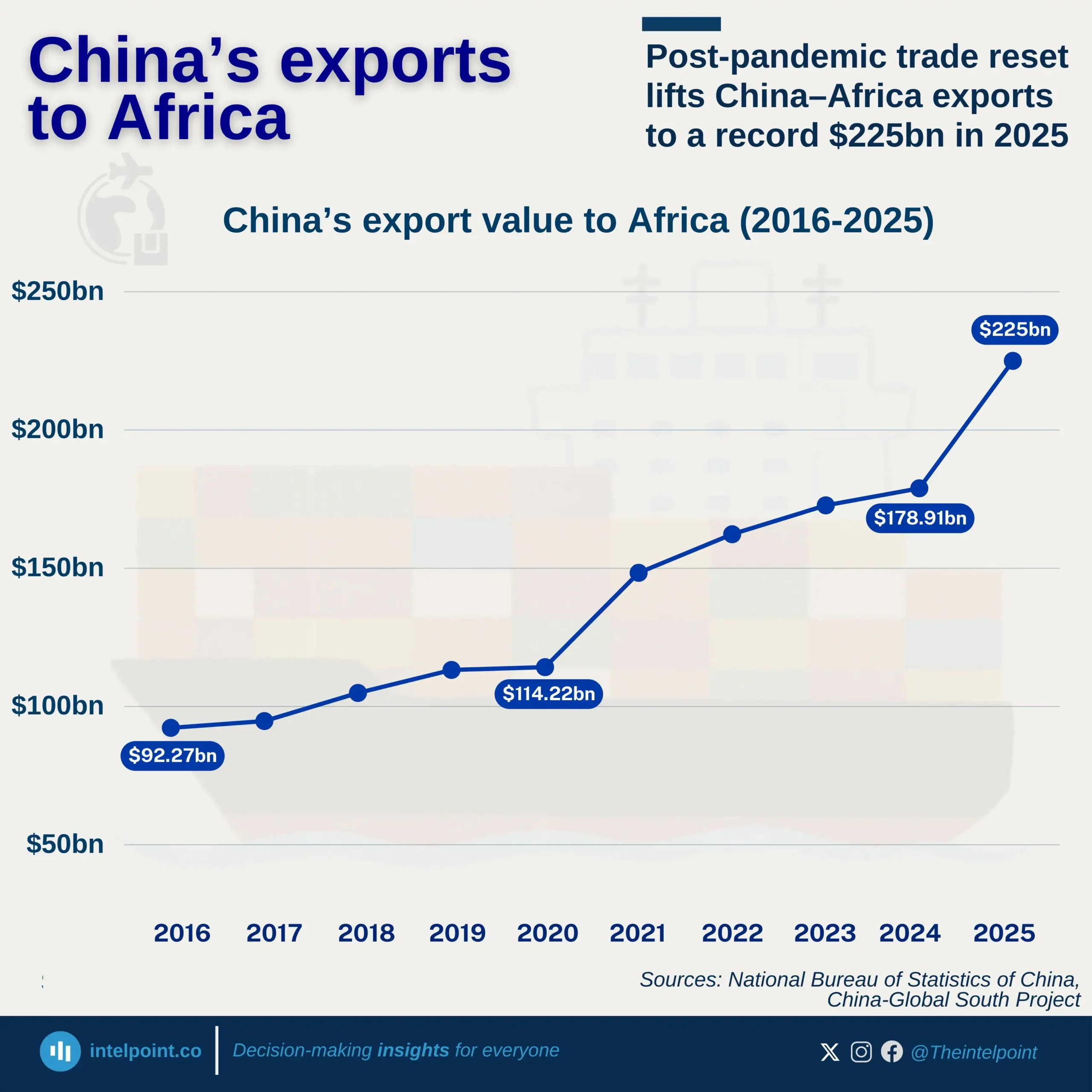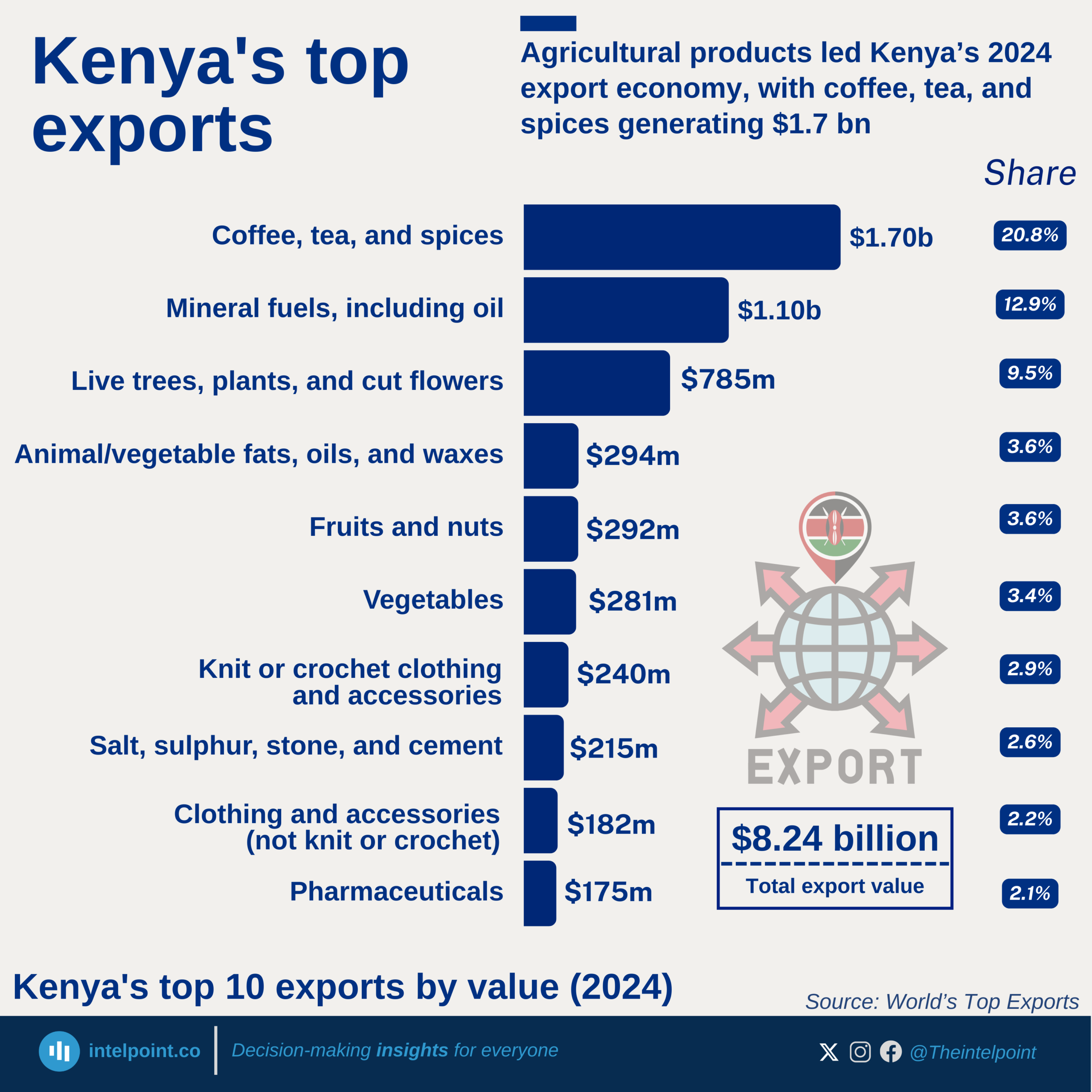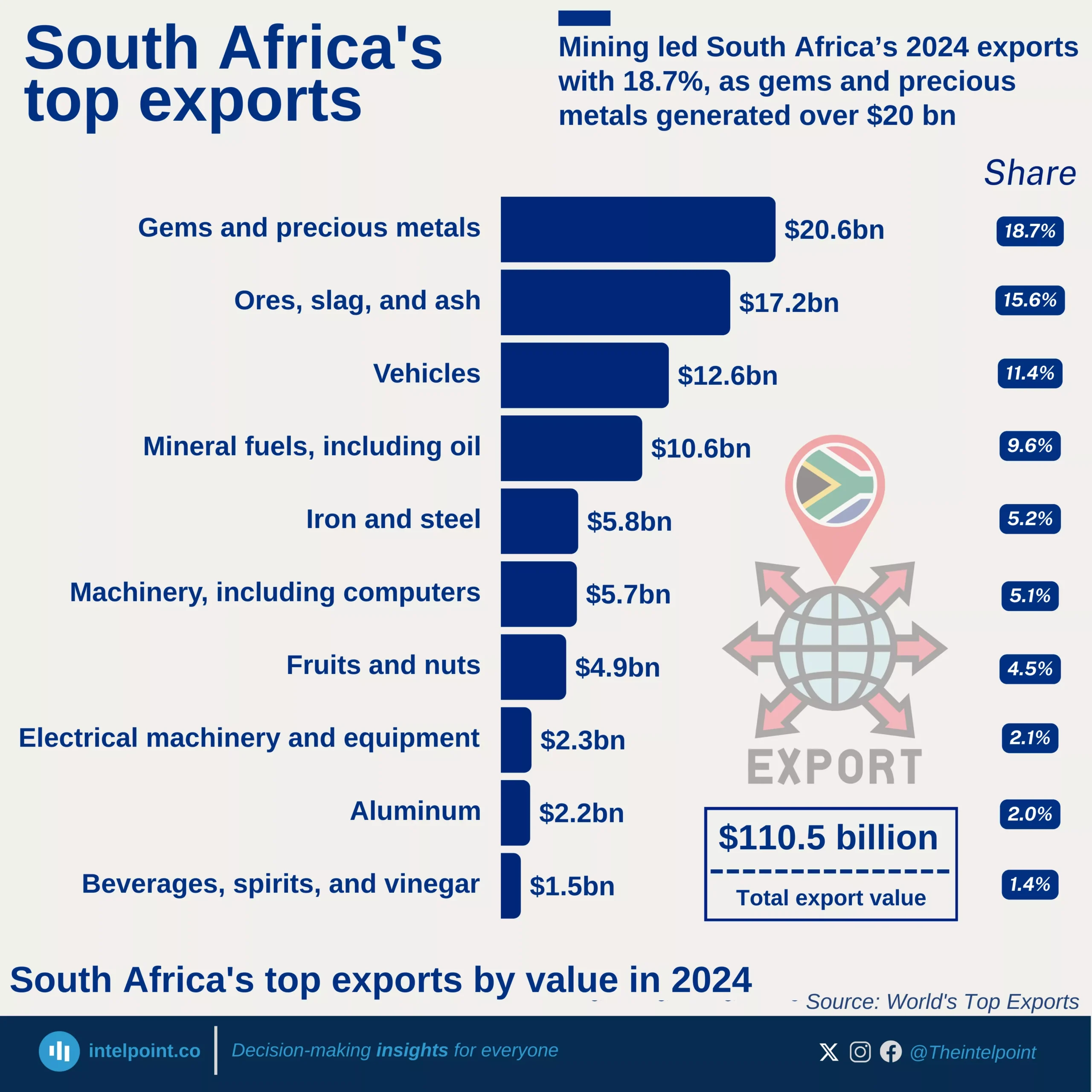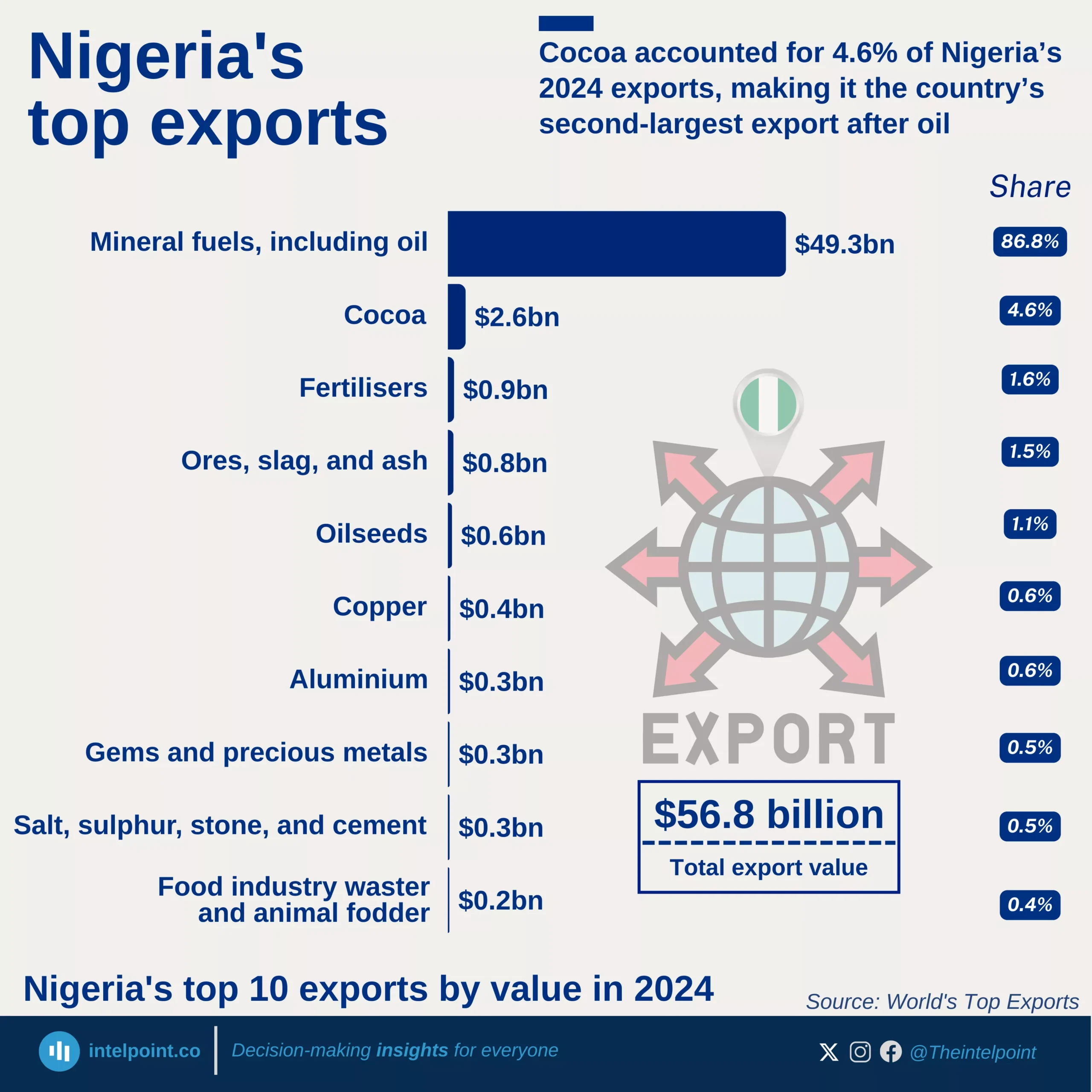Nigeria's export value rose by 16.8% quarter-on-quarter and 98% year-on-year, reaching ₦20.49 trillion in Q3 2024. Spain emerged as the top trading partner, with exports valued at ₦2.27 trillion (11%), while Italy rounded out the top five with ₦1.38 trillion (6.72%).
